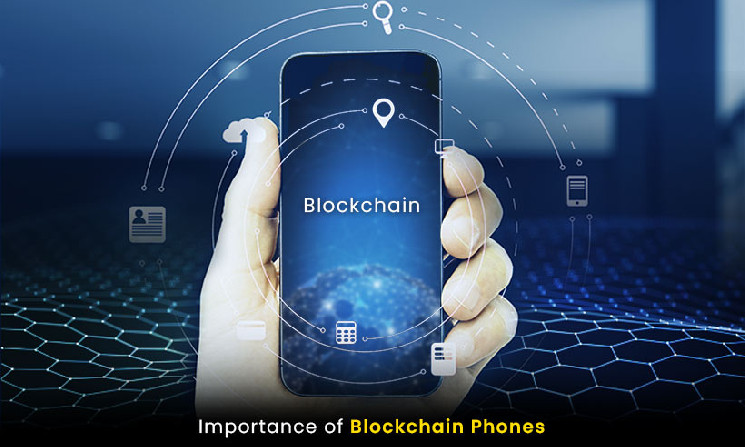As the world moves toward a more secure and connected world, blockchain technology is expected to play a vital role in developing new applications such as healthcare and autonomous vehicles. The increasing number of people and organizations using the Internet of Things (IoT) and the increasing number of devices connected to the network are also contributing to the growth of the industry's adoption. Despite the potential of blockchain technology, smartphones are still not widely available. Due to the increasing number of devices equipped with cryptocurrency support, many companies are starting to deliver these gadgets to the market. These include various types of devices such as storage wallets and exchange applications. While some of these are overhyped, the crypto community should consider buying blockchain phones.
What is a Blockchain Phone?
A blockchain phone is a device that focuses on the latest developments in the blockchain and crypto ecosystem. It's designed to be more practical than your average Android or iPhone. Most of the time, blockchain phones come with various security features, such as enhanced security for your private keys and cryptocurrency. Some also allow users to run a full bitcoin node. Although blockchain phones are available at various price points, the cheap ones are not as capable as the high-end models. As a result, the more affordable models are not as capable of handling the latest innovations.
What Blockchain Phones Offer
Optimal Security
Mobile devices powered by blockchain technology can provide additional security by having a built-in hardware wallet. It is standard equipment found on most blockchain phones. This wallet is essentially secure offline storage for your digital information. Folks can use it to store various types of data, such as your social media and financial information. Currently, it's mainly used to hold private keys for cryptocurrency. Although not all blockchain wallets have offline storage, some phones can provide additional security by having separate components. For instance, the Sirin Labs Finney has a different processor, display, keyboard, and secure element. In the long run, folks can use this type of hardware wallet for various applications. It can store multiple private keys, such as those used for cryptocurrencies. This move could allow people to store personal information such as passwords and credit card numbers in a secure environment. It could also help prevent unauthorized access to their data. By implementing this technology, the world could finally move beyond the current system of gathering and storing massive amounts of data.
Better Access to Dapps
Although you can already access dapp on mobile devices, blockchain phones typically have built-in hardware wallets that allow users to keep their dapp secure and easily downloaded. This feature makes it more convenient to carry around with you, as it eliminates the need to download and install apps. In addition to being easier to access, this feature also highlights the various advantages of dapp ownership. The key benefits of better dapp access are a store of NFTs, secret sharing, sending and earning crypto, and extra censorship-resistant communication.
Issues with Blockchain Phones
The concept of blockchain mobile phones is a fantasy many people have been waiting for. Unfortunately, it is not yet living up to its promise. Blockchain phones are expensive, and not everyone is ready to spend thousands of dollars on a brand new device. The phones are not equipped with blockchain technology, except for the ability to store and share data through a decentralized app. Also, unlike other cryptocurrencies, they only support a limited number of coins. It means that users can forget about a balanced and diverse portfolio.
The Future of Blockchain Smartphones
Through blockchain technology, users can control their online activities and data. Its anti-theft and security capabilities could allow them to perform various types of unauthorized activities, such as social recovery, on their lost devices. They could also blacklist their device's International Mobile station Equipment Identity number (IMEI), which prevents carriers and smartphone suppliers from identifying and disabling it. This process allows them to protect their personal information. Supporters of blockchain technology believe that the devices will eventually lead to the creation of a digital world. This concept, referred to as Web 3.0, will allow decentralized applications to run on public networks instead of private servers. One of the main advantages of blockchain technology is its ability to reduce the amount of plastic used in smartphones. In February, Verizon was granted a patent by the US Patent and Trademark Office for a system that makes virtual SIM cards using blockchain. The system would then associate a unique virtual SIM card with a user account and activate it. The device would then use a signal sent by the blockchain to confirm the activation. In the future, we could see more of this incorporated by mainstream telecommunication providers, thereby, leading to a greater degree of use of blockchain phones.
 cryptoknowmics.com
cryptoknowmics.com
